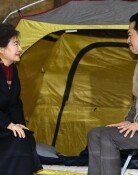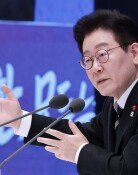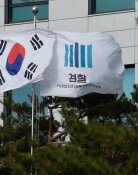[Reporter's View] Civic groups must share the blame
[Reporter's View] Civic groups must share the blame
Posted March. 21, 2001 14:11,
"Hikes in medical insurance premiums cannot be accepted as long as an overall readjustment of the cost of medical care and decisive measures to ensure
sound financing of the insurance system are not undertaken." Civic organizations repeatedly issued statements to that effect as the medical insurance system fell ever more deeply into debt. They called for reversing the increased cost of medical care on the ground that high costs led to the current difficulties.
The government raised fees for doctors and hospitals last year after they protested the closure of hospital and it should therefore be held primarily responsible for the financial failure of medical insurance system.
At the same time, doctors and hospitals can hardly evade criticism for holding the nation hostage to its demands.
Are the advocacy groups totally free from responsibility for failing to curb the misuse and overuse of drugs and thus bringing about the bankruptcy of the medical insurance system?
It is well known that at the time the medical community and pharmaceutical circles negotiated the separation of the prescribing and selling of drugs on
May 10, 1999 those civic organizations exerted much influence (described as intimidation by the medical community) on the process. The May 10 accord prompted
the government and the ruling party to implement the separation scheme.
Subsequently, advocacy groups vocally denounced the "special interest politics" of the medical community when the latter resorted to strikes and clinic shutdowns on the pretext of the government`s alleged ill-preparedness and the inadequacy of the insurance plan.
The division of labor between doctors and pharmacists has taken root in other countries naturally and smoothly over several hundred years. The absence of
their voluntary participation in that institution is bound to produce negative side effects. The latest financial pinch in the Korean medical insurance system
gives solid proof of that. The civic organizations could have induced the contending parties into voluntary involvement and pointed out the problems and
negative fallout from the separation. It might have been wishful thinking to imagine that they would enforce the separation plan by law spreading hopes for
its success. Even the bygone military governments fell shy of doing that.
An analyst said a few professors who were deeply involved in devising the separation plan later joined advocacy groups and led the way in pushing the plan.
This strange fellowship calls for sober rethinking of subsequent developments.
Song Sang-Keun songmoon@donga.com







